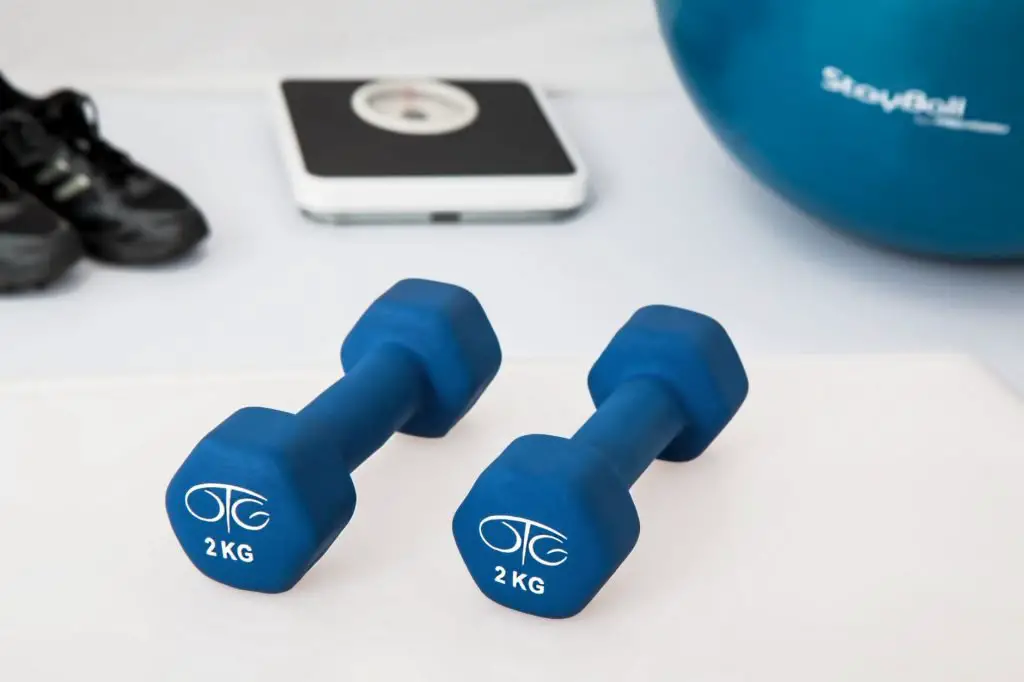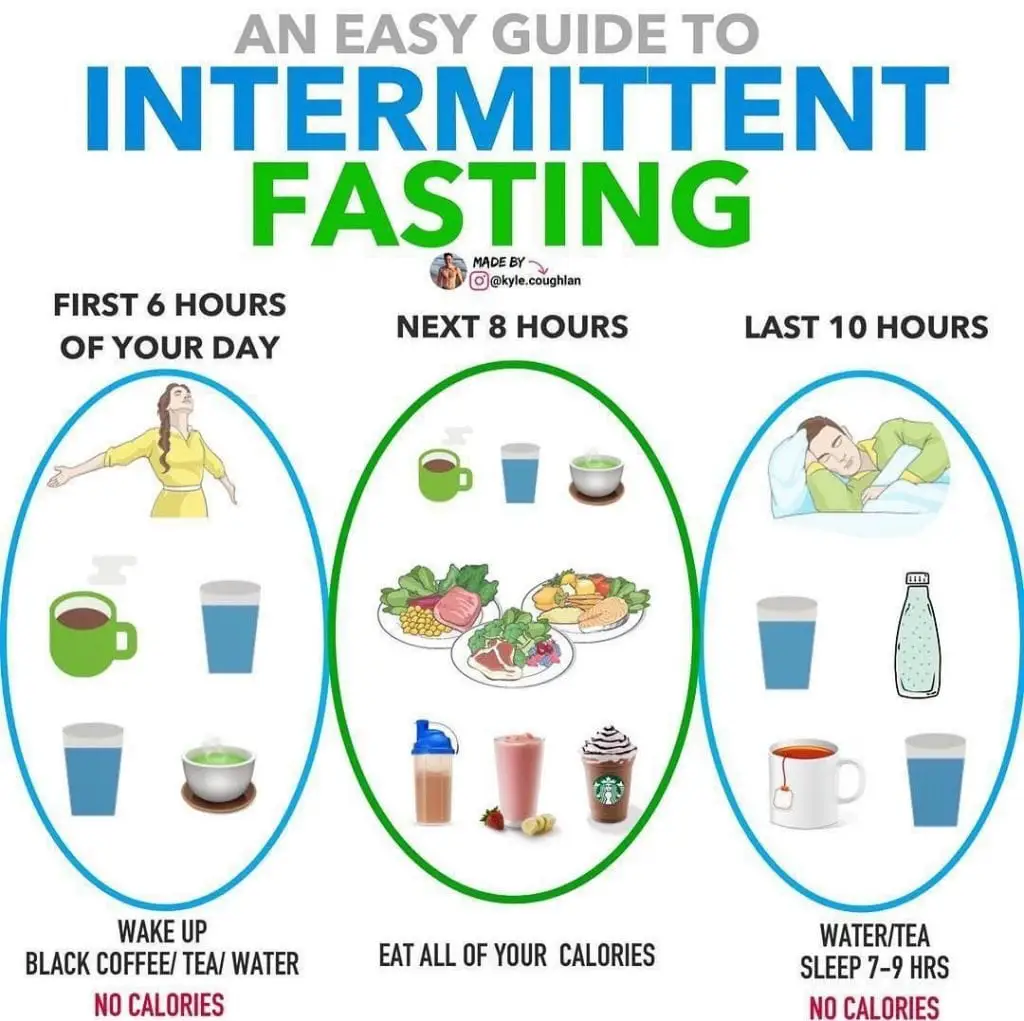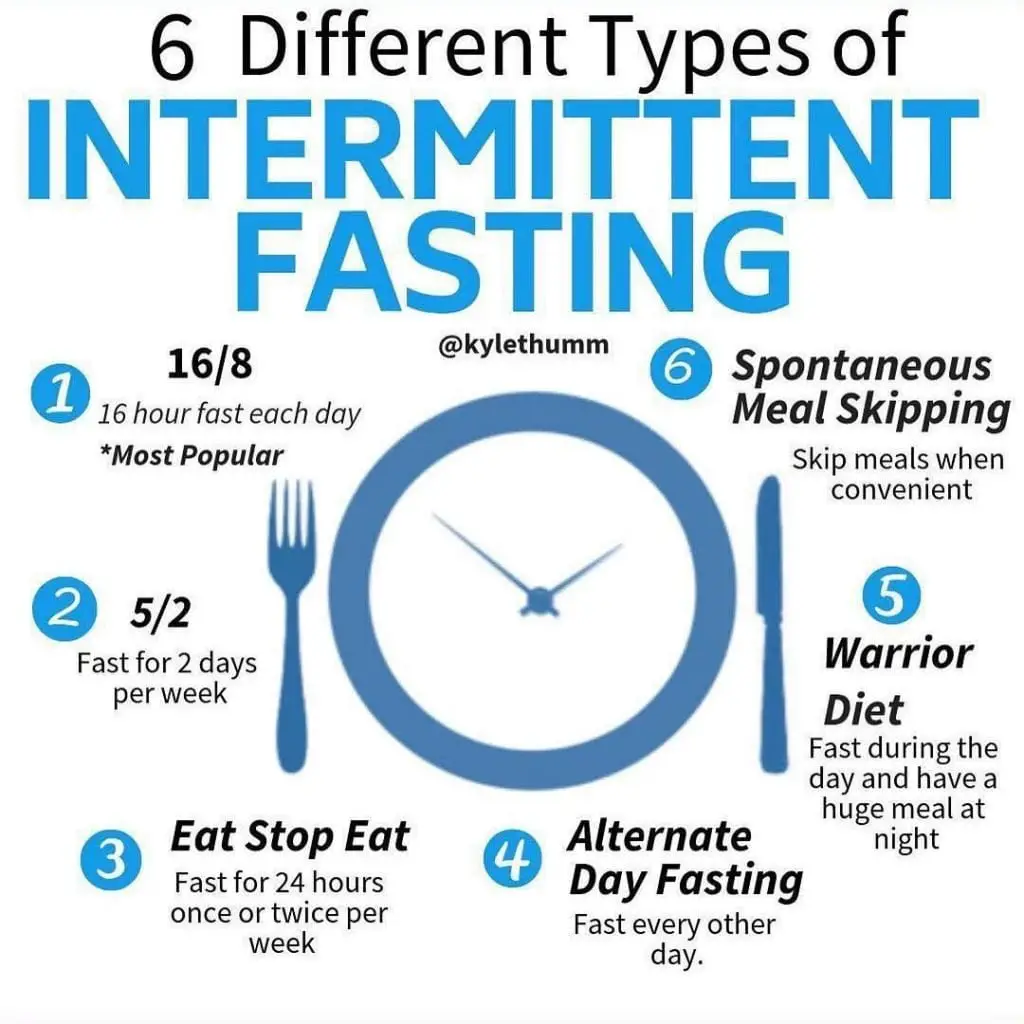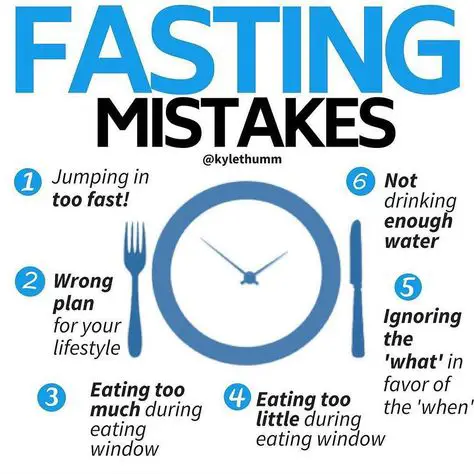If losing weight and slimming down are your main goal but wondering if does fasting make you gain weight?
Or, if you’re always interested in learning new fitness trends that help accomplish your body goals with ease.
Then, this article is for you!
Have you already heard about the fasting method or intermittent fasting?
If it’s the first time you come across this term, or even if you’re practicing it, there’re many aspects that you may not know about; and are useful to quicken your weight loss process.
But even more important, you’ll know if fasting makes you gain weight or not, so keep reading!
Intermittent fasting, who should benefit from it?
Nowadays, many of us are interested in taking care of our bodies, thoughtfully considering the exercises we do, and the food we eat.
It’s not only for a matter of vanity and appearance, but it’s for our health; for the well-being of our body and mind.
Many entertainment personalities practice it, such as Nicole Kidman, Beyoncé, Ben Affleck, and Hugh Jackman. And, they all ensure the effectiveness of this method.
Although, its great popularity began on social networks, many experts ensure that this method can bring a lot of benefits for the body when used in moderation.
First, we must let you know that some people have this method contraindicated. In those cases, it could be dangerous.
Pregnant or nursing mothers, people with chronic diseases, eating or metabolic disorders, cardiovascular diseases, and some other health conditions, should not be doing fasting.
It’s also not recommended for children or the elderly.
The fasting method or intermittent fasting is used, especially among athletes, as a dieting method.
But mostly, it’s a lifestyle. And as in every lifestyle, you must know what it is, before actually adopting it.
So, let’s start at the beginning.
What is Intermittent Fasting?
Intermittent fasting is a diet method where, during a limited period, we don’t eat solid foods – which provide calories.
Then, we have an “eating window” in which we eat all the necessary calories.
It’s a protocol in which we organize our meals between periods of eating and fasting.
But what about your social life? What happens if it’s Friday night and your friends invited you to dinner?
Or, if it’s family lunch Sunday? What will you do? Are you sitting there, watching others eat? Remember that a socially active life is also part of a healthy lifestyle.
The good news is that you can do what you need and want at that time!
If you are feeling extremely committed to your planning, you can explain to your friends and family the lifestyle you are adopting.
Another good advice is to drink water if you are in an uncomfortable situation. Water always helps. But, if you want to eat, just eat!
If at any moment you are traveling for work or vacations, and you want to have a special meal, just do it!
Intermittent fasting is a lifestyle, so you should live it as long as you still feel comfortable. One day at a time.
If you broke your fasting diet on a special occasion, don’t feel remorseful.
Just stick with the show. And, remember that flexibility does not mean being inconsistent.
You can allow exceptions, but for the fasting method to give you positive results, you must be persistent.
If you want this to work, and above all, if you want to avoid gaining weight with fasting, you must have a program to follow.
But if it’s not the case, does fasting make you gain weight? We’ll get there soon enough. First, let’s see what types of fasting can you practice.
How Many Types Of Intermittent Fasting Are There?
There are several types of intermittent fasting, and they depend on the time we spend without eating food.
12-12 Fasting Diet
12 Hours of fasting and 12 hours of eating. This fasting method is the most common.
Actually, many of us do it without knowing. For example, we had dinner at 9:00 pm and then we had breakfast 12 hours later the next morning.
16/8 intermittent fasting
16 Hours of fasting and 8 hours of eating.
We can make it a little easier if we eat dinner early and eat breakfast a little later the next day. This modality is also known as the Leangains method.
20-4 Warrior Fasting
This involves a 4-hour eating window and a 20-hour fast.
For example, you might eat between 2:00 pm and 6:00 pm every day and fast for the other 20 hours.
This principle is based on the idea that our primitive ancestors spent their days hunting and gathering and would feast at night.
Fasting for long periods
There is also the modality in which we spend days without eating. This method is known as: Eat, Stop, Eat.
This form consists of alternated days of fasting and days of food eating. The idea is to repeat this a few times a week.
Drinking calorie-free drinks such as tea or coffee without sugar is allowed.
- 24-hour fasting: This method demands an entire day without eating any solid food.
- 48-hours fasting: Two wholes days without eating any solid food.
How To Do Intermittent Fasting Safely?
Depriving yourself of food for an extended period of time may increase levels of cortisol, the body’s stress hormone.
So, the best thing to do when fasting for several days is to do it with medical assistance.
Doctors suggest that fasting methods aren’t safe for those people who have a medical condition.
So, it’s great that you want to stay in good shape but always be safe!
How To Do Intermittent Fasting For Weight Loss?
The reason why many people wondering if does fasting make you gain weight is that they want to use it as a method for slimming down quickly.
If you do fasting and eat in a calorie deficit, you will lose weight.
Fasting is not a diet, but a method of eating. Therefore it does not tell you what to eat and what to avoid to reduce belly fat.
When done right, fasting can help you lose weight and even prevent diseases like type 2 diabetes.
You’ll be helping your body process the food you eat during the eating periods. Fasting helps you manage your calorie intake more efficiently.
If you want to have better results, the recommendation for you is to combine the intermittent fasting with some strength exercises, whether you use your own or extra weight.

How Often Should You Do Intermittent Fasting?
You must choose the method that best suits your abilities and gradually increase it if you wish. You can do fasting as many times as you want, but most experts recommend fasting at least four times a week.
Studies suggest that the more you do it, the better results you will have. If you do it more than four times a week, your body will adapt to the new eating times.
How Long Does It Take For Intermittent Fasting To Work?
Like we mentioned earlier, intermittent fasting is a lifestyle, not a diet. If you do something that offers you so many benefits, why would you want to stop doing it?
At first, it’s always hard to adopt new habits, but after a period of discomfort, you’ll feel a lot better. You will be stronger and healthier.
Does Fasting Slow Metabolism?
No, it does not. That is just a widespread myth.
Metabolism is the set of chemical reactions that occur in the cells of our body when they transform food into energy.
Through metabolism, the food we eat becomes the energy we need to move, think, and grow.
One of the most common causes of low metabolism is thyroid problems, and so is an intolerance to certain foods.
When we are intolerant of some types of food, such as gluten or lactose, we will have poor digestion, and our metabolism will be slower.
It’s also probable that by doing very stringent and unbalanced diets, the metabolism will slow down.
So, Does Fasting Make You Gain Weight?
Some people believe that it may put on some weight because it slows down your metabolism.
What is happening is that our body identifies these situations as risky, that is why the metabolism acts as a defense method, to stop the caloric intake and increase reserves.
But, fasting is not a diet plan. It’s a planning of an eating schedule.
Many studies prove that fasting does not decrease our metabolism. On the contrary, it slightly helps to increase our metabolism.
It also causes our neurotransmitters to be released. The neurotransmitters manage the motivation or stress of our nervous system.
Can You Gain Weight On Intermittent Fasting?
If you don’t do it correctly, yes, you can gain weight with intermittent fasting. It is not a perfect method, and like in everything, it requires discipline and commitment.
But, if you do it in order, with discipline, with a structured diet and combine it with strength exercises, no, you will not gain weight.
On the contrary, you will improve your health and lose weight with intermittent fasting.
Remember that self-control is crucial. At mealtimes, you should have a balanced diet, rich in protein, low in fat, and with adequate portions.
You must also be patient. The fasting method is a lifestyle. It takes 21 days for a human to acquire a habit.
Although it may seem hard at first, the results will be worth it.
Why Did I Gain Weight On Intermittent Fasting?
First of all, gaining weight is always a possibility. Fasting is an excellent method, but it’s not that easy.
And, like everything in life, it needs practice, motivation, planning, and patience.
You will have some good days and some bad days. So, stop being so hard on yourself.
We have said it over and over, but it is crucial: Fasting is a lifestyle.
If you have been applying fasting methods for a while, and you can’t see the results, you are probably doing something wrong.
The first thing to keep in mind is that in addition to following the fasting method, you must have an established, well-balanced diet.
This diet should be rich in protein, such as fish, legumes, and vegetables. This way, you will avoid losing muscle mass.
You need to eat plenty of fruits and vegetables. And you should avoid eating fat. Only those known as good fats. Like dried fruit and avocado.
You must have an exercise routine besides doing cardio exercises; the truth is that it’s more important that you do strength workouts.
You should do routines using your own body’s weight, with additional weights, or using machines.
How Do You Keep Weight Off After Fasting?
The main obstacles to fasting are hunger, anxiety, cravings, and fatigue. And that is perfectly normal when you are just starting out.
But, remember that you are creating a habit, your body is getting used to it, and these stages of discomfort will end.
After a few days, you will be able to manage hunger and won’t gain weight with fasting.
To help you, you can drink water and coffee or infusions without sugar.
The truth is that most of us struggle with our weight, our health, and our appearance day by day.
So, remember to give yourself flexibility and celebrate the little successes along your weight loss journey.
Final Thoughts – Does Fasting Make You Gain Weight?
Beyond seeking to fit into imposed social patterns, what is important is our physical and mental health.
Intermittent fasting is not about having the perfect body but about being healthy. The path to a healthy life can be challenging and sometimes even confusing.
The most important thing is that you are not alone. Many of us are in the same fight as you.
P.S: If you’re having a hard time noticing any results and want to quicken your weight loss journey, check out this powerful new dieting formula that combines multiple benefits to help you get the slim, sexy body you’ve always wanted!





